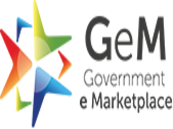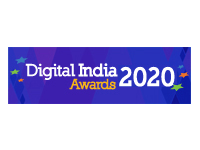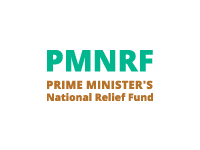Teaching Materials in the Field of Information
The education and training of information specialists requires the availability of teaching materials of good quality. PGI has always been concerned by this issue and has closely followed the recent evolution of both the techniques of production and the contents of teaching material.
Thirty years ago,the production of teaching material was easier and inexpensive. Only one medium was available : paper. Many techniques for preparing and reproducing on paper were easily accessible and the preparation of texts did not require specific competence except the ability to express oneself clearly in writing. In this connection, it is worth noting that the revised and augmented edition of the General Introduction to Information and Documentation Work, which was published in French in 1991, has in 1993 reached the selling figure of almost 5,000 copies. Despite rapid technological progress, the book is still a well appreciated instrument of communication and teaching.
The very rapid and drastic changes in information technologies started long ago : the appearance of AV material; transparencies, fixed films, slides, video, audio-tapes, etc. Soon after came the computer; first as a main frame located only in specific sites, then the micro-computer available everywhere. The digitization of print was soon complemented by the production of huge memories and led to the digitization of the multimedia. CD-ROM and video-discs are now almost ten years old.
On the other hand, the miniaturization of equipment has been so rapid that the processing of data coming from print, sound and image from all types of media is now common practice. What are the consequences of these changes on the production and use of teaching materials?
The production of teaching materials is more costly and requires specific technical competence; it is more difficult to translate non-printed documents from one language to another, including computer software; the use of those documents requires specific technical abilities of the users; images and sound convey local particularities which make adaptations necessary when using the document in another linguistic or cultural context.
PGI recently participated in a joint project for the production of Computer Assisted Instruction modules in the field of information retrieval.The time necessary, the amount of funding and the large number of personnel involved in the project clearly showed that the resources required are beyond those which can be expected in the near future at UNESCO. It is therefore reasonable to consider that international cooperation should concentrate on providing general guidance on the production of teaching materials.
At the international level, another role might be to create links among institutions so that they can collaborate in the production, distribution and use of teaching materials.
Intergovernmental Council for the General Information Programme
The tenth session of the Intergovernmental Council for the General Information Programme (PGI) took place at UNESCO Headquarters from 28 to 30 November 1994. Twenty six of the thirty Member States of the Council were represented. In addition, thirty-six observers from UNESCO Member States as well as observers from two non-Members States and nine international and non-governmental organizations also attended the meeting. The purpose of the meeting was to review the activities carried out by PGI since the last session of the Council, to guide the Secretariat in planning future programmes and to advise on the Medium-Term Strategy for the period 1996 -2001.
In his opening remarks, the Assistant Director-General for Commumication, Information and Informatics, Mr.Henrikas Yushkiavitshus, stressed that this session of the Council is taking place at a particularly important moment in the life of the Organization: the preparation of the Medium-term Strategy for 1996-2001,and informed the Council of the vast consulation and reflection process which took place in Member States, within the Secretariat and at the 145th Session of the Executive Board.
He added "In a period marked by unprecedented political, economic and social changes, one of the major issues facing PGI will be its ability to adapt to the rapid evolution of information and communication technologies and to the tremendous potential offered by the expanding planetary telecommunication networks"
"Without adequate assistance, the risk was high that the gap between developing countries in accessing and obtaining information would be ever increasing. Investments in the development of libraries, archives and information centres are generally very modest. The development of information infrastructures also raises a number of legal and ethical issues". Mr.Yushkiavitshus concluded by inviting the Council to make a substantive contribution to these issues and to the role PGI should play at the dawn of the twenty-first century.
The Chairperson, Mrs. Suzanne Richer, presented a report on the activities of the Bureau since the last session and informed the Council on the other Bureau meetings which were held since then. Two major issues were addressed at the 20th meeting: the dicussion and adoption of the "PGI Long Schools of Archives and Library and Information Sciences have already created bilateral links of cooperation, which have led to fruitful results. But in addition to existing bilateral and regional links, there is room for truly international collaboration mechanisms which could assure the following functions: identify priority areas for the production of teaching materials; identify trends in the use of technology for teaching; assist in the identification funding sources; assist in the identification of potential bilateral links; maintain a database on the material available on a world-wide basis.
To fulfil those functions, there is no need for expensive or complex mechanisms.With the means of communication available today, particularly Internet, it is possible to support a flexible network of institutions which could play that role. Such a project is now under consideration within UNESCO, and further developments will be reported in due course.
— UNISIST Newsletter,Vol.22,No.3





















